Iran 2009, a time for change?
Is the current protest in Tehran only a temporary crisis or rather an ongoing, persistent one? Is it the dawn of a coloured revolution (not velvet, but “green”) or even the attempt of a “coup d’état”? It might still be too early to answer these questions. Nevertheless, some facts deserve to be closer looked at and analysed in more detail.
Hanieh Ziaei . 23 juni 2009
Since several days, the Republic Islamic of Iran is shaken by a “civilian earthquake”. Following the Iranian presidential election of 12th June and the announcement of a sweeping victory of incumbent President Mahmoud Ahmadinejad, a wave of protests arose from the reformist opposition. The latter groups around Mir-Hussein Moussavi, the defeated candidate of the reformist camp.
The question at hand is: Is it only a temporary crisis or rather an ongoing, persistent one? Is it the dawn of a coloured revolution (not velvet, but “green”) or even the attempt of a “coup d’état”? It might still be too early to answer these questions. Nevertheless, some facts deserve to be closer looked at and analysed in more detail.
International reactions are very different: Condemning violent reaction of the Iranian regime (mass arrests of civilians and journalists, news blackout, restricted communications and the use of tear gas and truncheons against protesters), e.g. the French Socialist Party and various organisations from the NGO field support the call for change in Iran. In opposition to that the chief of the Israeli Mossad, Meir Dagan, expressed his believe that post-electoral trouble could not change the Iranian regime and that he had doubts about the “revolutionary” character of the protests.
Among state officials, Nicolas Sarkozy, Angela Merkel and Barack Obama reacted as well. Obama said that there might be only little difference between Ahmadinejad and Moussavi. This remark is not going uncontested by a lot of Iranians, who are very aware of the differences in domestic as well as international policies between Mohammad Khatami’s presidency (1997-2005) and the current one of Ahmadinejad.
Looking abroad, foreign policies towards Iran have of course an impact on the Islamic Republic too. The military threat and the economic sanctions of the George W. Bush years, pushed Iran to stagnation and created a feeling of paralysis among the population. The victory of the US Democrats in the American election of November 2008 had a huge effect at least on the young Iranians and brought the “wave of change” to Iranians’ hopes and dreams as well.
The Iranian people
Iranians see this confrontation as an opportunity for change. They hope that it could have a profound effect on the regime’s nature and policies. Nevertheless, many Iranians fear the reaction of the security forces. The Basij force[1] and the riot police are trying to get back the control over the streets – by repressive and often brutal means. When Supreme Leader Ali Khamenei announced a sweeping victory of Ahmadinejad just a few hours after the polling were closed, people felt angry and betrayed. T
housands of citizens took to the streets to express their dissatisfaction and anger, thus resulting in the political crisis we now see. Some Iranians declared that it was the last time that they went to vote despite the fact that millions of people had cast their votes on 12th June. Also many first time voters had felt encouraged by a very dynamic electoral campaign. During this campaign, the Islamic Republic had seen its first televised debates (broadcasted live on state TV) between the different candidates.
According to the Iranian constitution, the Guardian Council is in charge of monitoring presidential elections and legally should be given three days after the polls to receive and scrutinize complaints from the other candidates. Ali Khamenei clearly violated this rule. In a large country like Iran, with multiple ethnic groups living in communities in urbanized and rural parts of the country (and who tend to vote for the candidate they feel ethnically affiliated with), it appears surprising that an exact result could be disclosed within hours after the closing of the polling stations.
The blackout on all tools communication such as TV, cell phones, Facebook, twitter etc. Soon after the protests started, contributed to allegations about irregularities and the questioning of the legitimacy of the vote. Putting members of the opposition and their staff into police custody did not help to ease the pressure either. The regime with Khamenei at its top thus hugely contributed to a situation that is dominated by confusion, mistrust and misinformation.
The Iranian protest seen these days is not just a young movement against the current figures of the regime but a broader civil society movement against the Islamic Republic’s political system. This said, it is not only contesting the electoral results, but an expression of general dissatisfaction with the system and about how the country is run. Frustrations were mounting in recent years due to the imposition of ever more restrictions on social and personal freedoms as well as the catastrophic economic situation.
In a highly centralized system such as Iran’s, responsibility for this situation is first and foremost attributed to the Supreme Leader. The President with his limited powers is subordinated and clearly hold less accountable. Today’s civil movement could therefore be seen as a turning point, trying to contest the way power is distributed in and through the system. This might well result in a new form of political factionalism in Iran. This political earthquake will most be followed by aftershocks, fundamentally shaking the power structure of the Islamic Republic.
The timing for a general protest movement seems meanwhile well chosen. The world has watched Iran and the regime’s behaviour with growing interest (and concern!) over recent years. With the election now putting the spotlight on Iran as the world awaited the vote of the Iranian people, those dissatisfied with the regime might have seen a unique “window of opportunity” to express their wish for a change. Whether they will be successful remains to be seen. So far, Iran’s Guardian Council[2] has agreed to a partial recount of the votes. The members of the Guardian Council also received the three loser candidates on 20th June to discuss the electoral result. No matter the outcome, it is clear that the elections have had a profound and lasting effect on Iranian politics and society.
Iranians abroad
Even if the Iranian opposition abroad is often neither organized nor united, this time the protests seem to produce a certain “unifying effect”. Starting in Vancouver with about 3000 people and quickly spreading to Montreal, New York, Madrid, Brussels, Paris, Berlin etc., the “silent scream” gathered people in demonstrations around the world. Iranians and non-Iranians showed their solidarity with protesters in Iran, joining in to the hope for change. This massive mobilisation proves to Iranians that the world is watching and supporting them and their demands, starting with the annulations of the allegedly fraudulent election. For many Iranians, 2009 shall not only be an election year, but a year of fundamental change.
A challenge to the Supreme Leader
As outlined before, the issue at hand now in Iran is not who did win or lose the election. It is the Supreme Leader himself who faces mounting opposition and a challenge to his very legitimacy. Even if opposition and internal frictions have always existed in Iran, it is the first time since the Revolution of 1979 that a powerful front that unites reformists, parts of the clergy behind Ali Akbar Hashemi Rafsanjani (former President of Iran from 1989 to1997 and currently head of the Assembly of Experts) and Iranian civil society. The eighty-six member (clerical) Assembly of Experts – the only group that is empowered to remove the Supreme Leader from power – held an emergency meeting in Qom last week. Rafsanjani could try to convince clergy leaders in Qom to announce that Khamenei was not qualified anymore – with any consequences.
This of course would raise the question of Khamenei’s succession. A coalition of reformers and clergy, with Rafsanjani’s backing, could have challenged Khamenei’s choice for the next Supreme Leader. Khamenei, who is by some analysts believed to wish to be replaced by his son Mojtaba, would understand this as a direct and imminent threat to him and his family.
Taking into account all this, one can justifiably argue that the very foundation of the Islamic Republic is up in the air right now. But it is difficult to predict where this is finally going to go.
[1] The Basij is a volunteer-based Iranian paramilitary force, they serve currently as an auxiliary force engaged in activities such as law enforcement, emergency management, the providing of social service, organizing of public religious ceremonies, and more controversially morals policing and the suppression of dissident gatherings.
[2] The Guardian Council is charged with interpreting the Constitution of Iran,; supervising elections of, and approving of candidates to, the Assembly of Experts, the President and the Parliament and ensuring the compatibility of the legislation passed by the Islamic Consultative Assembly.
reactions are welcome on hziaei@gmail.com
The question at hand is: Is it only a temporary crisis or rather an ongoing, persistent one? Is it the dawn of a coloured revolution (not velvet, but “green”) or even the attempt of a “coup d’état”? It might still be too early to answer these questions. Nevertheless, some facts deserve to be closer looked at and analysed in more detail.
International reactions are very different: Condemning violent reaction of the Iranian regime (mass arrests of civilians and journalists, news blackout, restricted communications and the use of tear gas and truncheons against protesters), e.g. the French Socialist Party and various organisations from the NGO field support the call for change in Iran. In opposition to that the chief of the Israeli Mossad, Meir Dagan, expressed his believe that post-electoral trouble could not change the Iranian regime and that he had doubts about the “revolutionary” character of the protests.
Among state officials, Nicolas Sarkozy, Angela Merkel and Barack Obama reacted as well. Obama said that there might be only little difference between Ahmadinejad and Moussavi. This remark is not going uncontested by a lot of Iranians, who are very aware of the differences in domestic as well as international policies between Mohammad Khatami’s presidency (1997-2005) and the current one of Ahmadinejad.
Looking abroad, foreign policies towards Iran have of course an impact on the Islamic Republic too. The military threat and the economic sanctions of the George W. Bush years, pushed Iran to stagnation and created a feeling of paralysis among the population. The victory of the US Democrats in the American election of November 2008 had a huge effect at least on the young Iranians and brought the “wave of change” to Iranians’ hopes and dreams as well.
The Iranian people
Iranians see this confrontation as an opportunity for change. They hope that it could have a profound effect on the regime’s nature and policies. Nevertheless, many Iranians fear the reaction of the security forces. The Basij force[1] and the riot police are trying to get back the control over the streets – by repressive and often brutal means. When Supreme Leader Ali Khamenei announced a sweeping victory of Ahmadinejad just a few hours after the polling were closed, people felt angry and betrayed. T
housands of citizens took to the streets to express their dissatisfaction and anger, thus resulting in the political crisis we now see. Some Iranians declared that it was the last time that they went to vote despite the fact that millions of people had cast their votes on 12th June. Also many first time voters had felt encouraged by a very dynamic electoral campaign. During this campaign, the Islamic Republic had seen its first televised debates (broadcasted live on state TV) between the different candidates.
According to the Iranian constitution, the Guardian Council is in charge of monitoring presidential elections and legally should be given three days after the polls to receive and scrutinize complaints from the other candidates. Ali Khamenei clearly violated this rule. In a large country like Iran, with multiple ethnic groups living in communities in urbanized and rural parts of the country (and who tend to vote for the candidate they feel ethnically affiliated with), it appears surprising that an exact result could be disclosed within hours after the closing of the polling stations.
The blackout on all tools communication such as TV, cell phones, Facebook, twitter etc. Soon after the protests started, contributed to allegations about irregularities and the questioning of the legitimacy of the vote. Putting members of the opposition and their staff into police custody did not help to ease the pressure either. The regime with Khamenei at its top thus hugely contributed to a situation that is dominated by confusion, mistrust and misinformation.
The Iranian protest seen these days is not just a young movement against the current figures of the regime but a broader civil society movement against the Islamic Republic’s political system. This said, it is not only contesting the electoral results, but an expression of general dissatisfaction with the system and about how the country is run. Frustrations were mounting in recent years due to the imposition of ever more restrictions on social and personal freedoms as well as the catastrophic economic situation.
In a highly centralized system such as Iran’s, responsibility for this situation is first and foremost attributed to the Supreme Leader. The President with his limited powers is subordinated and clearly hold less accountable. Today’s civil movement could therefore be seen as a turning point, trying to contest the way power is distributed in and through the system. This might well result in a new form of political factionalism in Iran. This political earthquake will most be followed by aftershocks, fundamentally shaking the power structure of the Islamic Republic.
The timing for a general protest movement seems meanwhile well chosen. The world has watched Iran and the regime’s behaviour with growing interest (and concern!) over recent years. With the election now putting the spotlight on Iran as the world awaited the vote of the Iranian people, those dissatisfied with the regime might have seen a unique “window of opportunity” to express their wish for a change. Whether they will be successful remains to be seen. So far, Iran’s Guardian Council[2] has agreed to a partial recount of the votes. The members of the Guardian Council also received the three loser candidates on 20th June to discuss the electoral result. No matter the outcome, it is clear that the elections have had a profound and lasting effect on Iranian politics and society.
Iranians abroad
Even if the Iranian opposition abroad is often neither organized nor united, this time the protests seem to produce a certain “unifying effect”. Starting in Vancouver with about 3000 people and quickly spreading to Montreal, New York, Madrid, Brussels, Paris, Berlin etc., the “silent scream” gathered people in demonstrations around the world. Iranians and non-Iranians showed their solidarity with protesters in Iran, joining in to the hope for change. This massive mobilisation proves to Iranians that the world is watching and supporting them and their demands, starting with the annulations of the allegedly fraudulent election. For many Iranians, 2009 shall not only be an election year, but a year of fundamental change.
A challenge to the Supreme Leader
As outlined before, the issue at hand now in Iran is not who did win or lose the election. It is the Supreme Leader himself who faces mounting opposition and a challenge to his very legitimacy. Even if opposition and internal frictions have always existed in Iran, it is the first time since the Revolution of 1979 that a powerful front that unites reformists, parts of the clergy behind Ali Akbar Hashemi Rafsanjani (former President of Iran from 1989 to1997 and currently head of the Assembly of Experts) and Iranian civil society. The eighty-six member (clerical) Assembly of Experts – the only group that is empowered to remove the Supreme Leader from power – held an emergency meeting in Qom last week. Rafsanjani could try to convince clergy leaders in Qom to announce that Khamenei was not qualified anymore – with any consequences.
This of course would raise the question of Khamenei’s succession. A coalition of reformers and clergy, with Rafsanjani’s backing, could have challenged Khamenei’s choice for the next Supreme Leader. Khamenei, who is by some analysts believed to wish to be replaced by his son Mojtaba, would understand this as a direct and imminent threat to him and his family.
Taking into account all this, one can justifiably argue that the very foundation of the Islamic Republic is up in the air right now. But it is difficult to predict where this is finally going to go.
[1] The Basij is a volunteer-based Iranian paramilitary force, they serve currently as an auxiliary force engaged in activities such as law enforcement, emergency management, the providing of social service, organizing of public religious ceremonies, and more controversially morals policing and the suppression of dissident gatherings.
[2] The Guardian Council is charged with interpreting the Constitution of Iran,; supervising elections of, and approving of candidates to, the Assembly of Experts, the President and the Parliament and ensuring the compatibility of the legislation passed by the Islamic Consultative Assembly.
reactions are welcome on hziaei@gmail.com
Maak MO* mee mogelijk.
Word proMO* net als 2781 andere lezers en maak MO* mee mogelijk. Zo blijven al onze verhalen gratis online beschikbaar voor iédereen.
Meer verhalen
-
Nieuws
-
Nieuws
-
Interview
-
Wereldblog
-
Nieuws
-
Nieuws

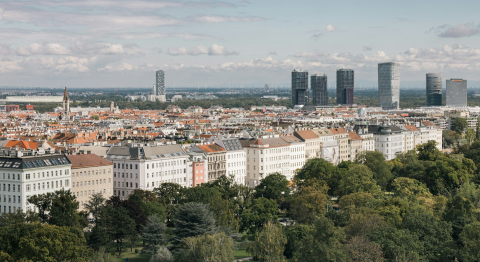
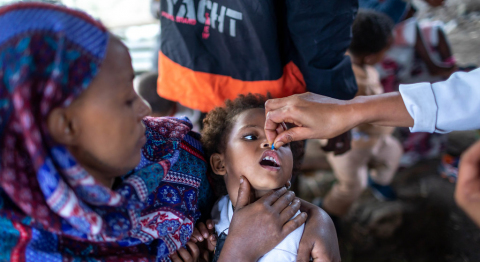
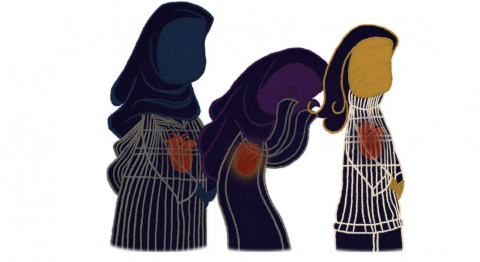

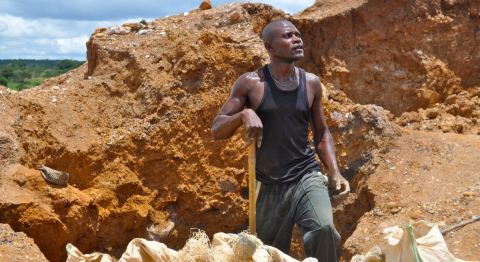
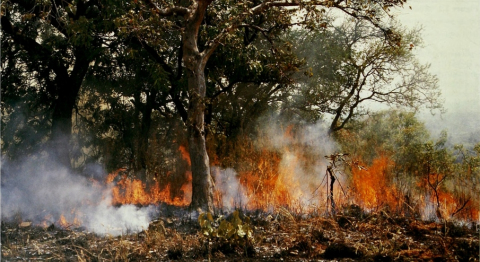


 Oxfam België
Oxfam België Handicap International
Handicap International